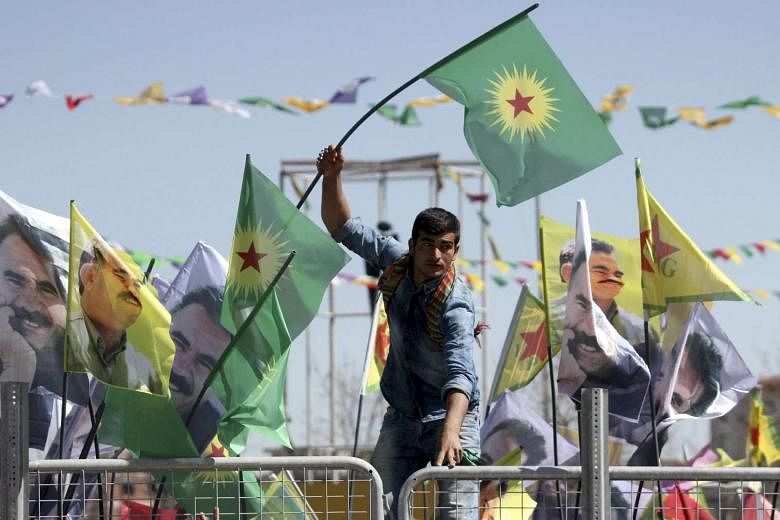The article by Straits Times Europe Correspondent Jonathan Eyal, titled "Kurds' bloody struggle for a state of their own" and published on March 21, portrayed the PKK, an internationally accepted terrorist organisation, and its motivations in a naive and biased manner.
The theme came across as a defence for the autonomy of the Kurds and their "rightful" struggle for independence, at times presenting their methods as justifiable. These arguments seem to echo the perspectives of some of the traditional non-regional actors that have contributed to the instability we see today in the Middle East.
Mr Eyal's statements, such as "Kurds have proven their distinct identity... by shedding blood for the ideal of creating their own state" and "(Kurds') claim for autonomy appears more justified", are dangerous and inadvertently rationalise the use of terror in accomplishing one's goals. Would the writer make similar comments if this bloodshed had taken place in his own country? In today's world, I believe most would agree that such an approach can only bring further chaos and instability to all nations, which to varying degrees, all consist of different ethnic and religious minorities.
With the latest terrorist attacks in Turkey, PKK has shown once again that it is a cold-blooded and ruthless terrorist organisation with no constraints. PKK uses a wide range of methods to carry out acts of terror, ranging from attacking facilities, schools, hospitals and ambulances, digging in in urban areas where they use civilians as shields, kidnapping people, executing uncooperative civilians, ambushes, et cetera.
Since July 20 last year, following the abandonment by the PKK of the reconciliation process initiated by the Turkish government, 472 people have been killed (326 security personnel and 146 civilians); 2,611 have been wounded (1,879 security personnel and 732 civilians); and 183 have been kidnapped (19 security personnel and 164 civilians) by the PKK terrorist organisation.
The Turkish government's attempts to start a reconciliation process and the policies of accommodation for peace with Kurdish groups failed, not because the Turkish government gave up on these policies but because Kurdish separatists saw this process as an opportunity to regroup and replenish, particularly following the recent developments in Syria. As a result, the south-eastern Turkish city of Diyarbakir was turned into a supply fortress and weapon depot, through which the PKK planned to stage its operations in Turkey. Consequently, the Turkish security forces had to intervene and free this city of its terrorist establishments and supplies, during which various weapons of Russian and Western origin were also seized. Therefore it is difficult to understand how a country securing its own territory can be accused of "acting heavy handedly and reducing the city into rubble", as Mr Eyal put it.
On the other hand, the Turkish government is also criticised for "toying with the idea of banning the People's Democratic Party (HDP)", a movement that draws its political support from some of Turkey's Kurds. I believe it would suffice to say that members of HDP led a group which presented their condolences to the family of the terrorist who acted as a live bomb in the March 13 terrorist attacks in Ankara that claimed the lives of 36 people.
Mr Eyal has glorified terrorists who attacked villages and killed innocent civilians, including babies, and claimed over 40,000 lives in the last 35 years with his statement that "the Kurdish terrorists of today are the sons and daughters of Kurdish fighters killed by the Turkish military during the 1980s". Groups that engage in acts against civilians can not and should not be regarded as fighters.
His comment that "Turkey seems condemned to endure bloodshed for years to come" is not only an unjustified statement but also one that plays into the hands of terror groups whose sole purpose is to create fear and division among communities. It should be underlined that the recent ruthless terrorist attacks are not only against Turkey but against our common values. In this respect, the international community as a whole should adopt a united and principled stance against all forms of terrorism, no matter where they come from.
• The writer is counsellor, deputy head of mission, Embassy of the Republic of Turkey.

